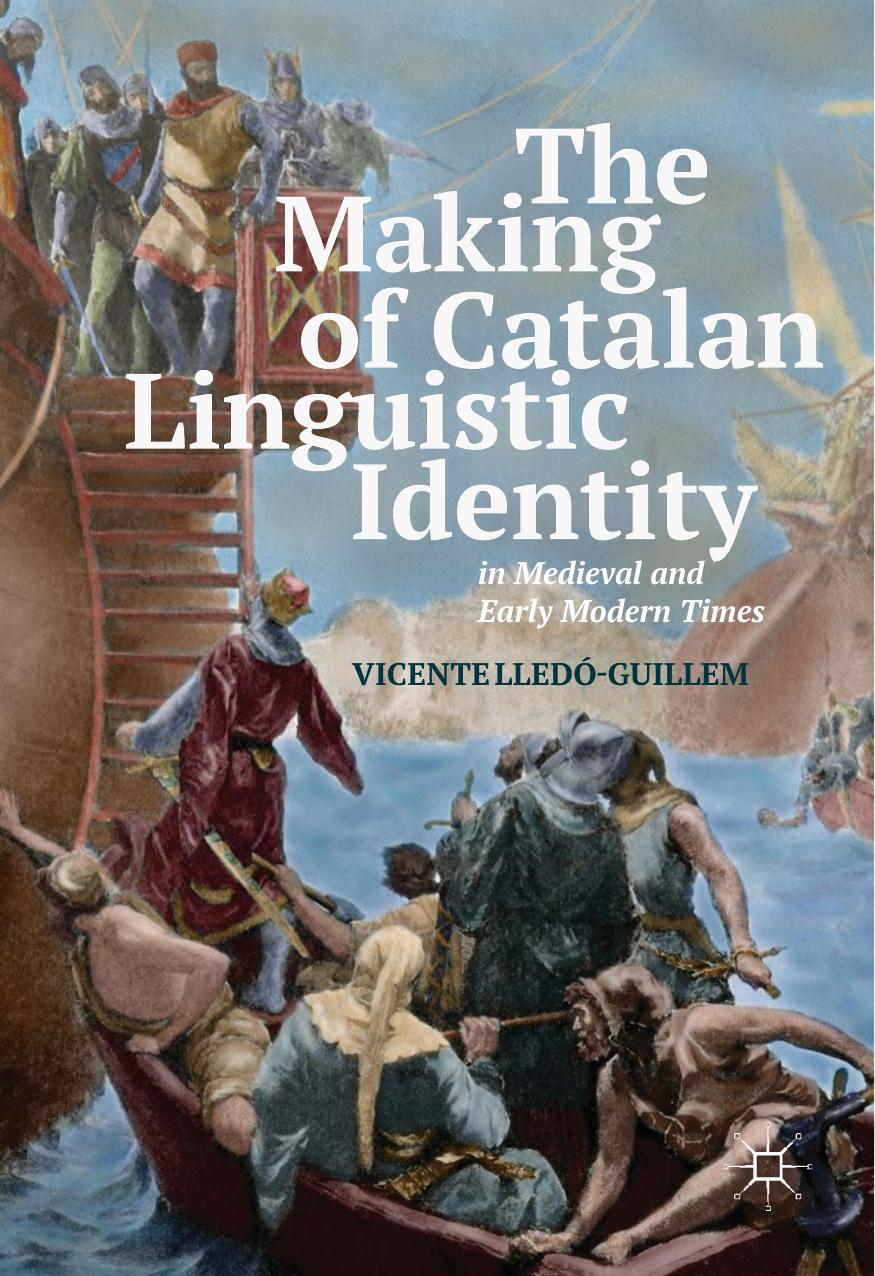The Making of Catalan Linguistic Identity in Medieval and Early Modern Times by Vicente Lledó-Guillem

Author:Vicente Lledó-Guillem
Language: eng
Format: epub, pdf
Publisher: Springer International Publishing, Cham
Albert Lloret has indicated that first, Baltasar de Romaní completed the translation and offered it, without the original , to the Duke of Calabria , Ferdinand of Aragón (1488–1550). The original appeared alongside the translation , but the latter did not correspond to the former. Moreover, the Castilian translation was used in several occasions to correct the original (Lloret 2014, 438). March’s poetic language needed to be translated because it was obscure. Romaní highlighted March’s reputation as a poet by emphasizing the merit of writing with such eloquence despite using such a crude language: “Oh prudent March, so famous because of your knowledge /Muses granted you such a gift /that your beautiful moral verses showed/great eloquence in a crude language ” (Riquer 1946, 125).28 Romaní does not mention the reason why he did not translate the Limousin verses into contemporary Valencian, instead choosing Castilian as the most adequate language to translate Ausiàs March’s poems .29 Translation in Romaní implies supersession of the original .
This linguistic supersession can be related to linguistic anonymity if we compare it to Pere Antoni Beuter’s First Part of the General Chronicle of Spain and, especially, the Kingdom of Valencia (1546):As time has united so many kingdoms that separated after the Moorish occupation in only one, except for the Kingdom of Portugal , at the same time it seems that it is necessary that they all have a common language, as it used to happen in the first Spanish monarchy in the time of the Goths . Therefore, it should not be considered a bad thing that I, a native Valencian who writes in Valencia […] write in Castilian, which is a strange language in Valencia . I do this for the common profit and so that the qualities of this Kingdom may be announced all over Spain , since this is not detrimental to the Valencian language and does not preclude the fact that it is a polished, sweet, and beautiful language that with moderate concision squeezes the secret and deep concepts of the soul and stimulates the wit towards important skills from which it acquires a renewed splendor […] Because our Valencian language is like that, as it can be observed in the poems and works of the ancient Valencians, even when the language was not as polished, which is why we call it Old Limousin. 30
Download
The Making of Catalan Linguistic Identity in Medieval and Early Modern Times by Vicente Lledó-Guillem.pdf
This site does not store any files on its server. We only index and link to content provided by other sites. Please contact the content providers to delete copyright contents if any and email us, we'll remove relevant links or contents immediately.
4 3 2 1: A Novel by Paul Auster(12375)
The handmaid's tale by Margaret Atwood(7757)
Giovanni's Room by James Baldwin(7330)
Asking the Right Questions: A Guide to Critical Thinking by M. Neil Browne & Stuart M. Keeley(5760)
Big Magic: Creative Living Beyond Fear by Elizabeth Gilbert(5756)
Ego Is the Enemy by Ryan Holiday(5415)
The Body: A Guide for Occupants by Bill Bryson(5082)
On Writing A Memoir of the Craft by Stephen King(4935)
Ken Follett - World without end by Ken Follett(4723)
Adulting by Kelly Williams Brown(4566)
Bluets by Maggie Nelson(4548)
Eat That Frog! by Brian Tracy(4526)
Guilty Pleasures by Laurell K Hamilton(4439)
The Poetry of Pablo Neruda by Pablo Neruda(4097)
Alive: The Story of the Andes Survivors by Piers Paul Read(4021)
White Noise - A Novel by Don DeLillo(4006)
Fingerprints of the Gods by Graham Hancock(3996)
The Book of Joy by Dalai Lama(3976)
The Bookshop by Penelope Fitzgerald(3844)
